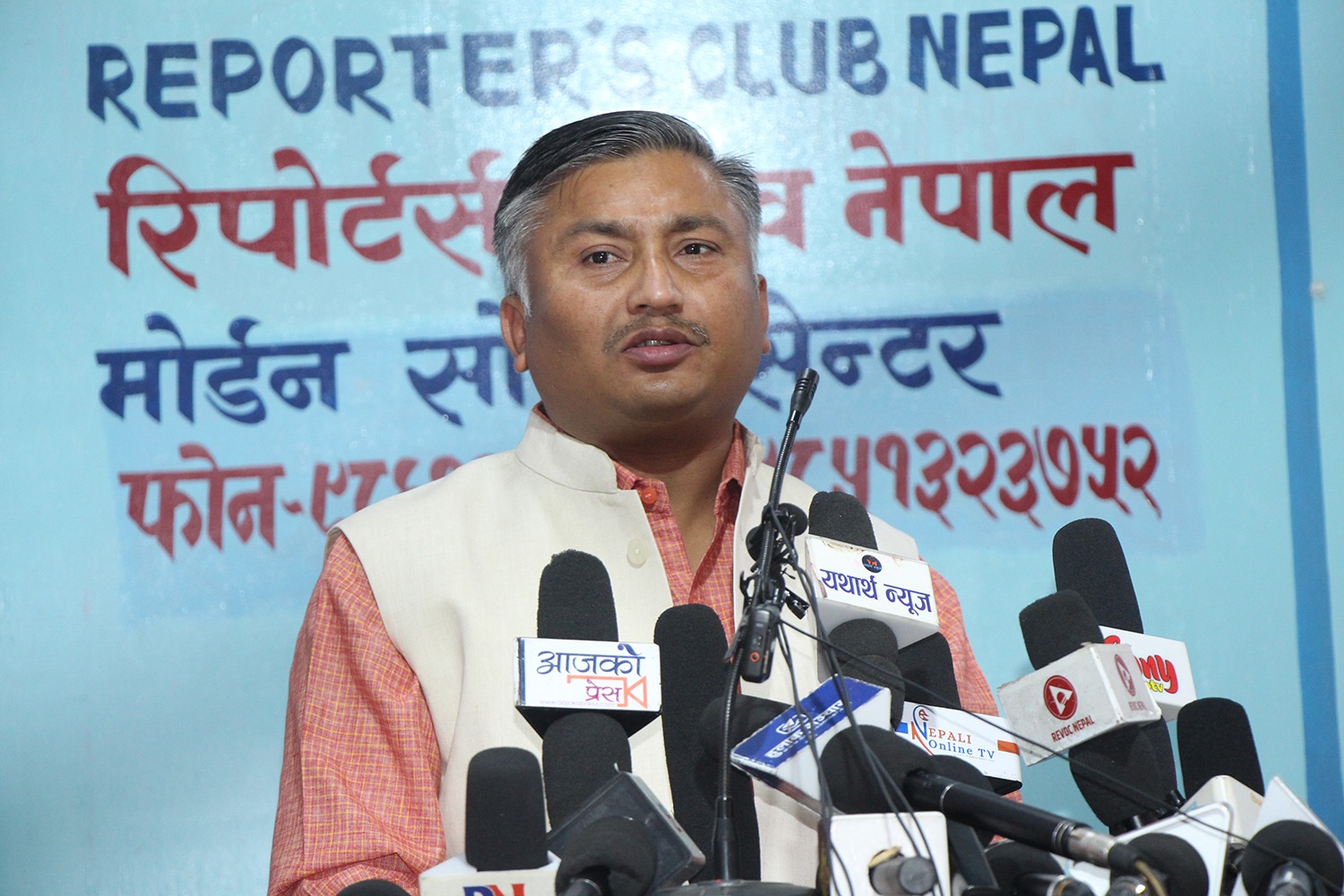Yadav Calls for Pakistani Embassy Closure, Cites Terrorism and Security Concerns

Kathmandu – Vinay Yadav, Central President of the Rastriya Ektata Abhiyan, has issued a strong statement demanding the immediate closure of the Embassy of Pakistan in Nepal, citing grave concerns over national security, religious harmony, and alleged promotion of terrorism.
In remarks shared recently, Mr. Yadav accused the Pakistani embassy of fostering anti-social activities within Nepal, which he claims negatively impacts internal security and peace. "The Pakistani embassy has allegedly been promoting terrorism in Nepal; therefore, it should be closed," Yadav stated unequivocally.
Elaborating on his concerns, Yadav alleged that elements connected to or supported by Pakistan are actively involved in disturbing Hindu religious activities in Nepal. He framed these alleged activities as a significant threat not only to Nepal but also to neighbouring India, given the open border shared between the two nations. "Islamic terrorists are against all Hindus, not just those in India," he asserted, positioning the issue as a broader ideological conflict.
Mr. Yadav expressed strong dissatisfaction with the Nepali government's response, describing it as "silent" in the face of these perceived threats. He further raised concerns about the entry of Rohingya refugees and other individuals he characterized as "anti-social Muslims" into Nepal, demanding a thorough investigation into the citizenship of all Muslims residing in the country.
Connecting his concerns to domestic policy, Yadav criticized the existence of a Muslim Commission in Nepal, contrasting it with the principle of a secular state often advocated by communist ideologies. He alleged that "anti-social activities by Islamic elements," purportedly backed by the Pakistani military, are occurring within Nepal.
Linking his demands to recent events, Yadav expressed condolences for the victims of a recent terrorist attack in Kashmir, which he attributed to Islamic terrorists. He reiterated his call for the embassy's closure, stating, "I request the Nepal government to close the Pakistani Embassy in Nepal because they are allegedly promoting terrorism." He suggested Nepal should adopt a stronger stance against Pakistan, similar to actions taken by India, warning that inaction could lead to criminal activities within Nepal and placing responsibility on "so-called secularists" should negative consequences arise.
Mr. Yadav also called upon peace and human rights advocates to actively oppose Islamic terrorism, arguing that "peace and human rights cannot be maintained" otherwise.
Separate Reports Allege Embassy Influence Peddling
Beyond Mr. Yadav's direct statements, separate reports have surfaced containing allegations about activities hosted within the Pakistani Embassy premises in Maharajgunj, Kathmandu. According to these sources, the embassy regularly hosts events where high-profile Nepali politicians, political activists, professors, senior journalists, and media personnel are invited.
These reports allege that anti-Hindu and anti-India documentaries are screened during these gatherings. It is further claimed that participants are treated to Pakistani hospitality, including cuisine and liquor, and may receive some form of remuneration. The sources contend that these alleged activities represent an effort by the embassy to extend influence beyond supporting specific community activities, potentially penetrating Nepali politics and media. It is claimed the embassy maintains a "roster" of favoured individuals who are regularly invited to these exclusive events.
Official Response Awaited
The allegations made by Mr. Yadav and detailed in the separate reports are serious and carry significant diplomatic implications. As of the time of reporting, responses from the Embassy of Pakistan in Kathmandu and the Ministry of Foreign Affairs of Nepal regarding these claims were not immediately available.
Disclaimer: This news story reports on allegations and statements made by specific individuals and unnamed sources. These claims have not been independently verified by this publication. The reporting aims to inform the public about the demands and concerns raised, maintaining journalistic standards of attribution and neutrality.





![From Kathmandu to the World: How Excel Students Are Winning Big [Admission Open]](https://nepalaaja.com/img/70194/medium/excel-college-info-eng-nep-2342.jpg)


